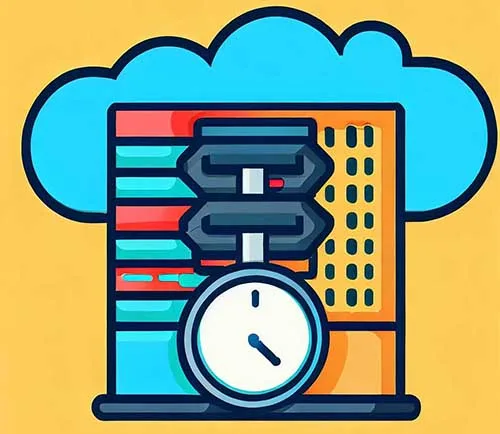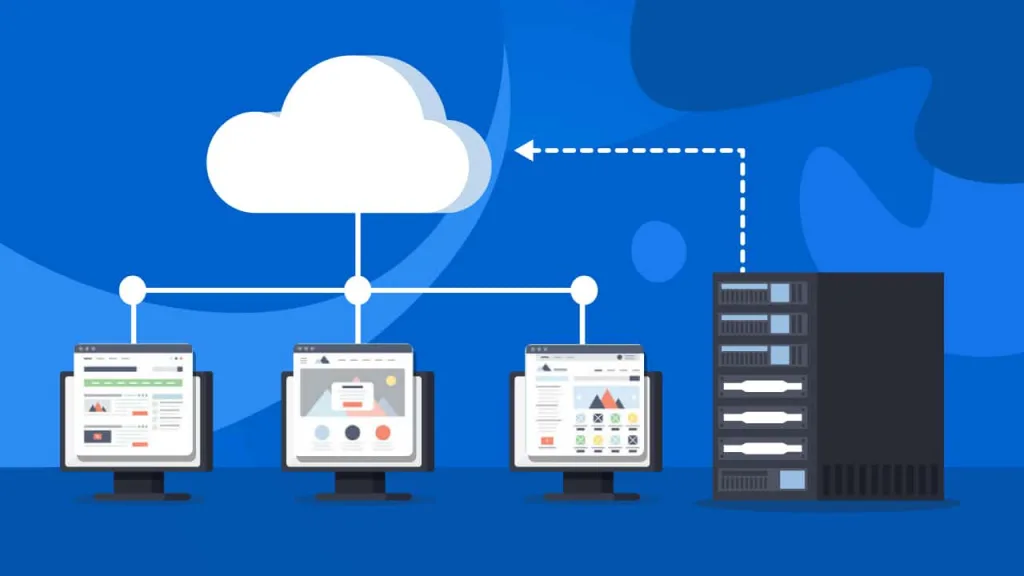Web Hosting Guide for Newbies: You are now thinking of starting a business online and your website needs to be hosted properly on a server so that you can draw potential internet buyers to your newly created website.
As a newbie, you do not know where to find a reliable and affordable web hosting provider? You become stuck with a lot of other issues about web hosting and are searching frantically for answers and asking yourself “Has this been all in vain?”
What you need is a simple and easy to understand guide that tackles the common issues newbies face about web hosting.
So let’s begin…
What Does Web Hosting Mean?

You can easily develop a website using one of the common website development tools. But other internet users won’t be able to view your website unless you host your website on the internet. The web hosting service providers rent space on their servers to upload and host your website so that every user on the internet can gain access to your website.
When you have a space for your website. You need an identity for your website so that users can visit your website through the identity. That is why you need to buy a domain name which uniquely identifies your website among millions of other websites on the internet.
Web hosting service providers usually provide you an option to buy a domain name from the service provider itself. With a domain name and a space on a webhosting server. Your website can be made available in the large pool of World Wide Web and internet users can see your website after they type in the domain name of your website on their browser’s address bar.
Web hosting service providers provide different types of hosting plans and services. Free web hosting is provided by several hosting providers. But in those cases, your website will most probably be populated with numerous advertisements by the hosting provider. The bandwidth for free hosting services is very limited.
With shared hosting service, you will share the space on host server with other website owners. But you can hire as much bandwidth as you want. Dedicated hosting is the most exclusive web hosting service which provides unlimited bandwidth and lots of choices with respect to hardware, software and operating system.
Web Hosting Guide for Newbies – What is Bandwidth?

The web hosting service providers provide different hosting plans and you have to choose a plan based on the bandwidth required by your website. Bandwidth refers to the amount of traffic that can occur between your website and internet.
In order to transfer data to and from your website. The hosting provider should use network connections within the data center and public internet.
When you pay for bandwidth, you are paying for the overhead connection charges that must be met by your hosting provider.
Every single loading of web page consumes bandwidth and websites that contain lots of multimedia content consume a lot of bandwidth. If you have several elements in your website that should be downloaded to your visitor’s computer. You should choose a higher bandwidth plan.
The amount of traffic that comes to your website also determines the bandwidth utilized by your website. When more and more computer users visit your website. The traffic increases and as a result, more bandwidth will be used by your website.
Finding the right bandwidth plan for your website can be tricky. Because you can’t really estimate the amount of bandwidth required. Web hosting providers provided limited bandwidth plans and if you purchase such plans, your website visitors may have a bad internet experience when your website exceeds its bandwidth limit.
You should always choose the biggest bandwidth plan you can afford at the time. Depending on the website traffic and usage statistics. You can upgrade your web hosting plans and several providers provide unlimited bandwidth plans for large websites that receive large amounts of traffic.
What are Domain Name Servers
Every website must be hosted on an internet server in order to be made visible to website visitors. A server is typically a computer which is uniquely identified using IP address in a network.
When you host a website, you have to buy a domain name for it and once hosted. Your website will have a corresponding IP address. The domain name servers map the domain name of your website with its corresponding IP address.
Websites are assigned domain names to be used by internet users because IP addresses are hard to remember. Moreover, when you change your web hosting provider. Your website address remains the same while the IP address of the hosting server will change.
The responsibility of the domain name server is to translate domain names into IP addresses and vice versa. When the user types in the name of your website. The browser will be redirected to a DNS server which maps your domain name with the IP address.
Web pages will then be presented to your website visitor directly from the hosting server. For each and every webpage load, DNS will be utilized to resolve domain names and IP addresses.
When you host your website, your website hosting provider will give you at least two DNS servers to use. When you setup your website on a hosting server. You have to use the DNS servers provided by your hosting provider so that your website visitor is properly redirected to your website.
When this DNS server setting is not properly installed. Then your website visitors will never be able to find your website even though they know the domain name of your website.
Web Hosting Guide for Newbies – What is Web Hosting Uptime?

When you develop and host your website. You want your website to be made available to international internet users 100% of the time. However, almost all web hosting providers can’t guarantee that your website is operational 100% of the time.
Web hosting uptime refers to the time during which your website will be completely operational. Downtime is also referred by some hosting providers. And it refers to the amount of time your website will not be functional. These figures are usually given in percentage.
Mission critical websites should have maximum uptime. Because when the connection to your website is lost for internet users, it will lead to bad reputation for your website.
If you are hosting ecommerce website, your visitor will be frustrated if the web hosting provider can’t guarantee operational websites. While choosing web hosting provider, you should pay attention to the uptime guaranteed by the provider.
Many hosting providers guarantee 99.5 to 99.99% uptime. In order to make sure that you are not fooled. You should research about your hosting provider and actually read the entire uptime guarantee agreement.
Your hosting provider should have disaster plans and backup plans to reduce damage to your website during website downtime. Now, there are tools available that can be used to measure uptime and downtime of websites and you should use those tools to check your website’s availability.
If the uptime guarantee provided by your hosting provider is not met, you should immediately change your hosting provider to cut back on your losses.



